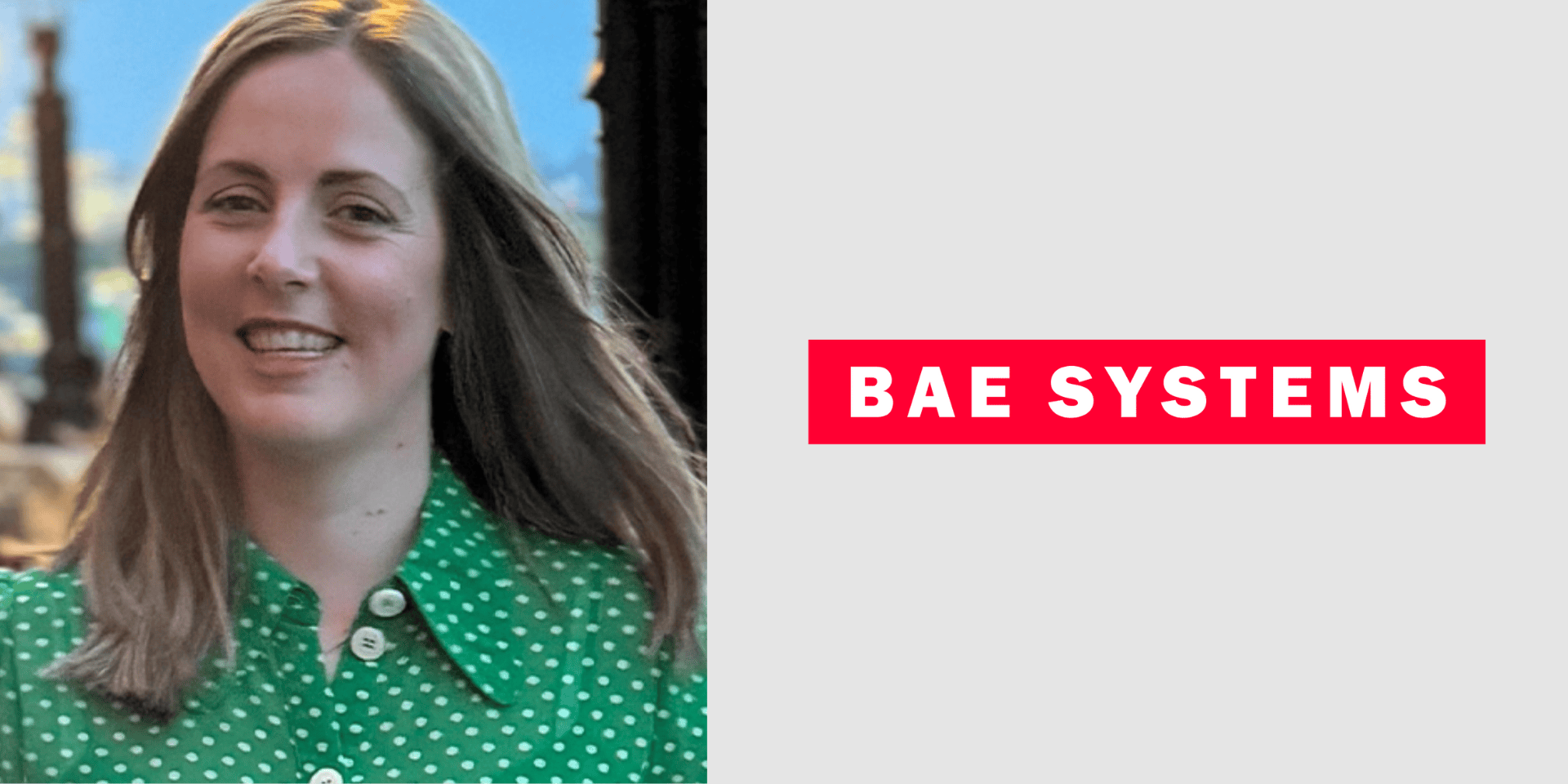Space is one of the final frontiers of innovation, but until recently, it’s been a largely male-dominated one. That’s changing, slowly but surely, thanks to women like Rachael.
As Director of the Space business at BAE Systems, Rachael now leads a complex, high-performing team at the heart of national security and international collaboration. But her journey into space leadership didn’t begin with a dream of satellites or engineering degrees aimed at the stars.
Instead, it’s a story of strategic pivots, stretch roles, and embracing purpose-led leadership – the kind that not only delivers results, but makes space for others to follow.
From Engineering to Orbit
“I joined BAE Systems at 16 and back then I never thought I’d be running a space business,” Rachael reflects. “If someone told me back then that this would be the case, I’d have been so excited, but wouldn’t have necessarily believed them!”
Her early roles took her into mechanical engineering and overseas projects with defence customers in the Middle East and Europe. A secondment into the UK Ministry of Defence would become a turning point.
“It was a really challenging time, bringing different stakeholders together, from civil servants, military officers, BAE Systems colleagues, and industry partners,” she explains. “We had a real flagship event at the end of it all where we set up a joint squadron between the Royal Air Force and the Qatar Emiri Air Force. Seeing how my team had contributed to that from an initially tricky position was very rewarding and fulfilling.”
Women in Space: A Growing (but Still Sparse) Presence
Although the global space industry is expanding rapidly, with revenues expected to hit over $1 trillion by 2040, it remains heavily skewed in terms of gender. According to a 2022 Space Foundation report, women make up only about 20% of the space workforce globally. In Europe, just one in five professionals in aerospace and defence are women.
The reasons? A mix of structural barriers, lack of visible role models, and underrepresentation in engineering and physics degrees – disciplines often required for traditional space roles. But the tide is shifting. As the sector expands to include new disciplines like data science, cyber security, and programme management, more women are finding entry points into the industry.
Rachael’s leadership is part of that shift, and her presence in such a high-level role sends a powerful message: women don’t need to have started in space to lead in it.
Lessons in Leadership and Learning
Rachael’s career has been shaped not by a rigid plan, but by a willingness to embrace challenge.
“What I’ve learned is that there are lots of twists and turns in that journey. Ups and downs, highs and lows,” she says. “In those difficult moments in your career, that’s where you learn the most about yourself… When stretched outside of your comfort zone, that’s where you actually accumulate skills and knowledge.”
That growth mindset now feeds into her leadership approach. With her team spanning engineering, delivery, customer management and more, Rachael focuses on enabling high performance through culture.
“We’ve got some amazing people within the business unit,” she says. “Providing that environment and culture for everyone to be at their best, to trust each other, and to recognize the interdependencies that exist, will be crucial.”
She believes accountability and open communication are central to getting the best out of people. “I think higher performance levels are reached when we not only understand what’s expected, but when we can have honest conversations with each other about what we need, why we need it, and when we need it for.”
Why Space, and Why Now?
“You can’t help but be drawn to the mystique and curiosity of space,” Rachael says. “I’ve always been drawn to things I don’t fully understand, and space provides such a big opportunity to grow a knowledge base and to explore new solutions.”
Yet it’s not just the technical challenge that motivates her, it’s the global significance.
“As we see the world getting more and more uncertain and volatile, BAE Systems has an important role to play in the space domain to support customers and allies,” she says. “We need to ensure that we continue to protect those who are protecting others, and to contribute to a safe and secure global society.”
That global lens is part of what makes space so compelling: “It is so unifying. The unit and capability we’re now building will be really important for the long-term security and prosperity of the UK, but also as a vital support function for our customers and allies across the broader ecosystem.”
Representation Starts with Visibility
Rachael is candid about the importance of representation, especially in a sector like defence technology. As one of the few women in senior leadership in this space, she understands the significance of being seen.
And that visibility starts close to home.
“Importantly, my niblings think I’m very cool,” she laughs. “One of them double-checked whether this means I’m now the boss of satellites and astronauts – I just love how their minds work.”
Her advice for women considering similar paths? You don’t have to have all the answers up front.
“Some of the best things I’ve done have started with me being a bit unsure and doing it anyway,” she shared in her interview with BAE Systems. “Those are the moments where you learn the most.”
What’s Next: Azalea and Beyond
The next major milestone for Rachael and her team is the upcoming launch of Azalea, a tangible step in BAE Systems’ expansion into the space domain.
“It will be a huge milestone off the back of our Digital Intelligence efforts,” she says. “But I’m excited to then use it as a platform to build a sustainable, high-performing, profitable business arm.”
For her, it’s not just about launching satellites, it’s about launching careers, ideas, and a new era of inclusive leadership.
“The space domain naturally lends itself to innovation, to building capability, and to creating something significant for the future.”




